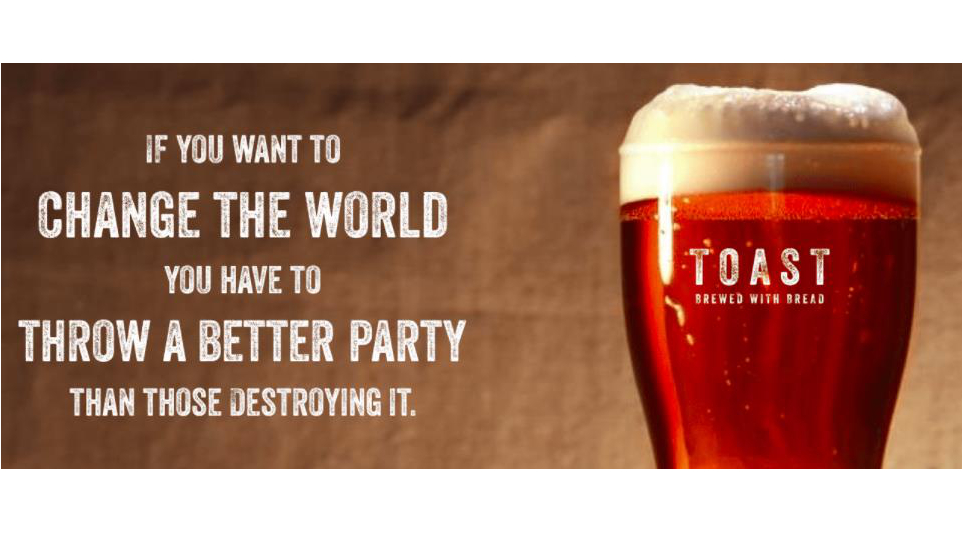Discarded bread is often turned into animal feed or dumped in a landfill. But now an environmental campaigner has come up with a better solution: brew it into beer.
When looking at the issue of food waste, be prepared to tackle astronomical numbers. Globally, we waste around one third of all food produced – meaning we also ultimately waste the energy and resources used to produce it. Bread wastage is one of the worst offenders, with 44 per cent of bread in the UK being thrown out instead of eaten.
Now, British environmental campaigner Tristram Stuart is looking at that waste as an opportunity. He’s created Toast, a brewery specializing in producing a range of award-winning beers from discarded bread.
By exploiting this resource, Toast is able to put discarded bread back into the human food chain. Often, other than ending up in landfills, bread discarded from bakeries, sandwich makers and supermarkets is turned into animal feed, compost or used for anaerobic energy production. Although recycling of a sort, this is an inefficient use of still edible bread. The best situation for food produced for humans is, obviously, to be eaten by humans.
Turning Bread Into Booze
The process behind Toast isn’t exactly revolutionary, as beer has been used as a tastier, longer lasting and, let’s face it, funner, alternative to storing carbohydrates for millennia. The bread received by Toast and their partner breweries (usually via charities who can no longer store it) is shredded and mashed before being combined with malted barley hops, hops, yeast and water. The carbohydrate-rich bread is broken down into sugar by the amylase in the barley, which is converted into alcohol by the yeast.
With this process, Toast creates five core products and local collaboration beers, the profits of which are donated to Feedback, a charity co-founded by Stuart. Established in 2009, Feedback works with governments, NGOs, businesses and the wider public to change the way food is produced, used and distributed with the aim to end food wastage by 2025.
Although Toast strives to fix a global issue, it wants to do it locally. Instead of exporting its beers, and generating the energy and fuel consumption that entails, Toast aims to establish a range of local breweries sourcing local bread and producing local brews. Having established itself in the UK, Toast is now looking to expand its franchise into new climes, such as the USA, Iceland, South Africa and Brazil.
Luckily, Toast isn’t alone in their mission to end food wastage. Recently we heard of a company recycling coffee grounds into cups, while another is turning coffee into flour. All this talk of food got you hungry?
Well, there are apps out there, such as SirPlus and MealSaver, which will deliver you food from restaurants and markets that would have otherwise been wasted. Perhaps you can wash it down afterwards with a bottle of Toast suds?









